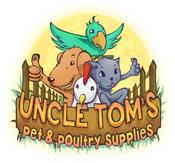Nutritionally balanced diet for lorikeets and lories.
Key Features
Excellent Nutrition: Enriched with essential amino acids (lysine, methionine), omega-3 & 6, vitamins & minerals.
Improved Health: High-quality protein for good feather and body condition. Moderate iron & vitamin A levels reduce the risk of dietary overload.
Calculated Feed Guidelines: To minimise waste and prevent over-feeding.
Ingredients
Sucrose, glucose, processed cereals, soy & whey protein isolates, vegetable oils, omega-3 & omega-6 fatty acids, lysine, methionine, carotenoids, vitamins A, B1, B2, B3, B5, B6, B9, B12, C, D3, K, biotin, choline, calcium, phosphorus, potassium, sodium, magnesium, zinc, iron, manganese, copper, iodine, selenium, 1g/kg Actigen dried yeast prebiotic.
Typical Analysis
Protein 13%
Fat 6%
Ash 3%
Moisture 4%
Energy (ME) 16 MJ/kg
Directions
Feed dry, or mix with warm water to a desired consistency. Always ensure that fresh drinking water is available. Remove soiled or uneaten food daily. Captive birds are prone to over-eating, so feed according to body weight, based on the guidelines below.
These feed amounts may vary depending on daily temperature, bird activity level and the nutritional value of other foods eaten. Offer a variety of fruit, vegetables and as much native blossom as possible.
Breeding Lorikeets
Increase feed quantity by up to 50% and supplement with Parrot Soft Food or Finch Soft Food.
Wild Lorikeets
Ration daily feed to no more than 3g (? scoop) per bird per day. Limit feeding frequency to reduce dependence on the food. Thoroughly clean feed containers between feeds. Transmission of disease and the presence of predators can be problems at feed stations. An alternative to feeding is to plant flowering native shrubs and provide fresh water.
Key Features
Excellent Nutrition: Enriched with essential amino acids (lysine, methionine), omega-3 & 6, vitamins & minerals.
Improved Health: High-quality protein for good feather and body condition. Moderate iron & vitamin A levels reduce the risk of dietary overload.
Calculated Feed Guidelines: To minimise waste and prevent over-feeding.
Ingredients
Sucrose, glucose, processed cereals, soy & whey protein isolates, vegetable oils, omega-3 & omega-6 fatty acids, lysine, methionine, carotenoids, vitamins A, B1, B2, B3, B5, B6, B9, B12, C, D3, K, biotin, choline, calcium, phosphorus, potassium, sodium, magnesium, zinc, iron, manganese, copper, iodine, selenium, 1g/kg Actigen dried yeast prebiotic.
Typical Analysis
Protein 13%
Fat 6%
Ash 3%
Moisture 4%
Energy (ME) 16 MJ/kg
Directions
Feed dry, or mix with warm water to a desired consistency. Always ensure that fresh drinking water is available. Remove soiled or uneaten food daily. Captive birds are prone to over-eating, so feed according to body weight, based on the guidelines below.
These feed amounts may vary depending on daily temperature, bird activity level and the nutritional value of other foods eaten. Offer a variety of fruit, vegetables and as much native blossom as possible.
Breeding Lorikeets
Increase feed quantity by up to 50% and supplement with Parrot Soft Food or Finch Soft Food.
Wild Lorikeets
Ration daily feed to no more than 3g (? scoop) per bird per day. Limit feeding frequency to reduce dependence on the food. Thoroughly clean feed containers between feeds. Transmission of disease and the presence of predators can be problems at feed stations. An alternative to feeding is to plant flowering native shrubs and provide fresh water.
















